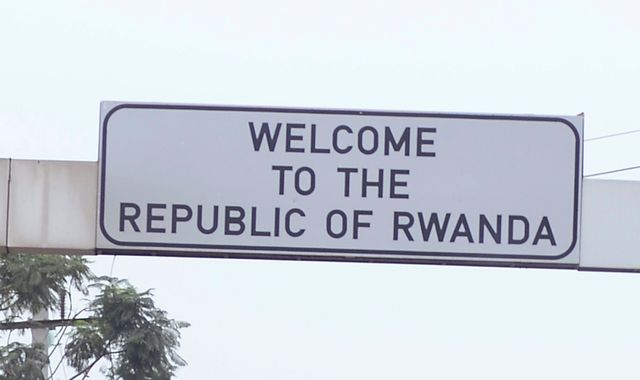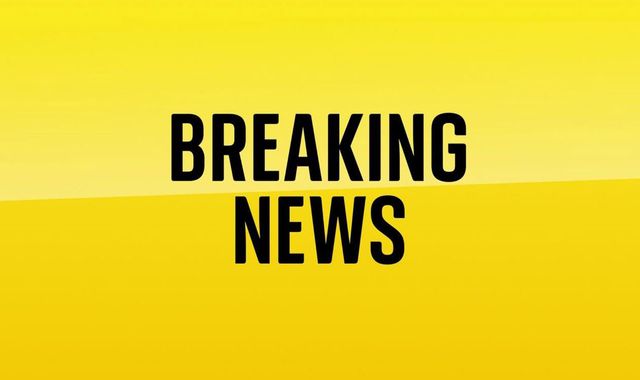Rwanda bill to become law after late night row between government and Lords
22 April 2024, 14:06 | Updated: 23 April 2024, 07:52

The government's Rwanda bill will finally become law after the Lords decided they would no longer oppose it following hours of wrangling.
For weeks, peers have been pushing back on the scheme - which seeks to deport asylum seekers arriving in the UK via small boats to the African nation - and trying to get ministers to make changes to the controversial legislation.
But after further rounds of so-called "ping pong" saw the bill flit between both Houses throughout Monday evening, both MPs and peers have now agreed to the plan, and it will soon become law - with Rishi Sunak pledging the first flights will take off "in 10 to 12 weeks".
Read more:
Latest reaction after government's Rwanda bill passes Lords
How many asylum seekers does the UK remove and how much of an impact will the policy have?
Home Secretary James Cleverly has said the bill will become law "within days", adding that its passage through the Lords was a "landmark moment in our plan to stop the boats".
The Rwanda scheme was first proposed by Boris Johnson two years ago as a way to deter people from making dangerous journeys across the Channel.
But it has faced a raft of criticism from opposition parties, charities and even some of the government's own backbenchers, and no flights have taken off - despite the prime minister's earlier pledge to see them leave "in the spring".
The UK's Supreme Court also ruled the plan unlawful last November.
After the bill was accepted by the Lords, Freedom From Torture, Amnesty International and Liberty said the UK was increasingly gaining a reputation for "playing fast and loose with its international obligations".
A spokesperson for the organisations said: "We all deserve the chance to live a safe life, and to seek protection when we need it most. This shameful Bill trashes the constitution and international law whilst putting torture survivors and other refugees at risk of an unsafe future in Rwanda.
"No matter how many times the prime minister says so, we know this is not the will of the people."
Analysis: PM can no longer blame his opponents if the Rwanda scheme fails to take off
But Mr Sunak - who has made "stopping the boats" a central part of his leadership - introduced changes in this bill to establish Rwanda as a "safe country" in British law, and negotiated a new treaty with the nation, believing the measures would solve the legal issues raised.
The migrants risking it all to get to the UK
Despite these revisions, and Mr Sunak calling it "emergency legislation", the parliamentary process has dragged on for months, with peers sending it back on multiple occasions to push for changes.
But at a press conference on Monday morning, the prime minister said "enough is enough", and promised the bill would pass by close of play on the day, "no ifs, no buts".
In its latest parliamentary round on Monday night, the Lords won a concession from the government over its demands to ensure asylum seekers who had worked with British armed forces abroad were not deported to Rwanda.
In a last-minute attempt to see the bill through, they promised to reassess all those from Afghanistan whose claims had been rejected under the Afghan Relocations and Assistance Policy (ARAP) scheme, with Home Office minister Lord Sharpe saying: "We will not let them down."
However, there was no compromise on offer for Lord Hope's amendment, which would have required an independent body to rule Rwanda as a "safe country", rather than just declaring it in law - and peers pushed once more for its inclusion on the bill, backing his call by 240 votes to 211.
Returning to the Commons shortly after 10pm, MPs again rejected the amendment thanks to the Conservatives' majority, and the Lords was once more asked to approve the bill - with hopes from the government that it was the final fight.
Around midnight, the Lords agreed there would be no further amendments to the bill, sending it to King Charles for final approval.
(c) Sky News 2024: Rwanda bill to become law after late night row between government and Lords

























